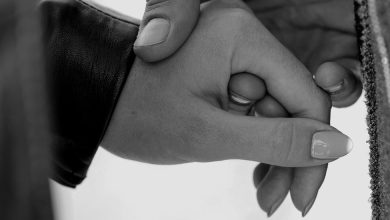The Mall Mogul and Former Republican Who Could Lead Los Angeles

LOS ANGELES — At the Grove, the luxury shopping center he created in the middle of Los Angeles, Rick Caruso is treated like the mayor of the mall.
Shoppers stop to shake his hand, pose for photographs and occasionally offer suggestions and complaints. On their way out, they can pick up an unusual memento at the concierge stand — a Caruso for mayor lawn sign, a symbol of his more than $34 million attempt to apply his expertise overseeing faux town squares to the very real and far messier task of running the nation’s second-largest city.
As he sipped coffee near the Grove’s dancing fountain on a recent afternoon, he made no apology for tying his vision of the city to the manicured image of his shopping centers.
“You know what I’m going to do? I’m going to make L.A. more livable,” Mr. Caruso said. “We’re going to have cleaner streets and better parks, and we’re going to have lower crime. And you’re going to be able to go for a walk and not worry about it.”
Los Angeles faces vexing crises over who can live there and how, as its longstanding problems with housing affordability, homelessness and crime have taken on new urgency during the pandemic. And Mr. Caruso, 63, whose malls across Southern California made him a billionaire, has gone directly at voters’ frustrations with those problems, portraying Los Angeles as a city in deep decay and promising swift action on a law-and-order agenda.
Heading into Tuesday’s primary election to replace Mayor Eric Garcetti, who faces term limits, Mr. Caruso has flooded the airwaves with so many ads that he is almost certain to make it into a runoff with his top rival, Representative Karen Bass, who was on President Biden’s short list for vice president and has much of the city’s Democratic establishment behind her.
But Mr. Caruso has an outside shot at coming away with more than 50 percent of the vote. Under the city’s unusual primary rules, that would let him skip the November election and go directly to the mayor’s office in December.
A victory for Mr. Caruso — a one-time Republican who became a Democrat just before announcing his run — would be a stark shift in this overwhelmingly liberal city, which Senator Bernie Sanders easily carried in the 2020 Democratic presidential primary.
Moneyed would-be politicians have a spotty track record in California. Al Checchi spent $40 million on a failed bid for the Democratic nomination for governor in 1998. And Meg Whitman blew $143 million of her fortune running for governor in 2010.
Read More About the Homelessness Crisis in America
- ‘Invisible Child’: In 2013, a five-part Times series told the story of Dasani, an 11-year-old Black girl who lived in a Brooklyn homeless shelter. Today, she’s still struggling.
- A Rising Death Toll: More than ever it has become deadly to be homeless in America, especially for men in their 50s and 60s.
- Housing Discrimination: A voucher program aimed at reducing homelessness in New York City has been hamstrung by the discriminatory practices of landlords and real estate agents.
- Los Angeles Goes to War With Itself: The pandemic has intensified a bitter fight over homelessness in the city — with no end in sight.
Mr. Caruso’s rivals liken him to a different businessman with no government experience who traded on his wealth and reputation: A campaign mailer from an independent group supporting Ms. Bass morphs Mr. Caruso’s face with that of Donald J. Trump.
Mr. Caruso frequently cites another Republican businessman turned Los Angeles mayor: Richard Riordan, who won office after the 1992 Los Angeles riots, having spent $6 million on his campaign. And his supporters invoke Michael R. Bloomberg, the billionaire and onetime Republican who won three terms as mayor of New York.
But no analogy can quite capture a man who is a uniquely Los Angeles phenomenon.
Mr. Caruso’s wealth — and his association with the boldface names of Los Angeles society — are central both to his public image and his rapid political ascent. The son of the founder of Dollar Rent a Car, Mr. Caruso grew up wealthy and learned early how to use power. He has acknowledged having leveraged his connections in his 20s to obtain a seat on one of the city’s important municipal boards.
A prolific donor to the University of Southern California, Mr. Caruso was chairman of its board of trustees and helped usher in a new administration in the aftermath of several scandals. (In an only-in-Los Angeles coincidence, Mr. Caruso’s daughter was vacationing on his $100 million yacht with one of the students involved in an admissions bribery case when it first became public.)
His campaign has the backing of several celebrities: Wolfgang Puck, members of the Kardashian-Jenner empire, Gwyneth Paltrow, Snoop Dogg. Yet his Hollywood support is not unanimous: In recent days he has publicly sparred with Jeffrey Katzenberg, the mogul and Democratic donor who is backing an independent expenditure committee supporting Ms. Bass. After Mr. Caruso attacked Mr. Katzenberg for “lying” about him, Mr. Katzenberg shot back that Mr. Caruso was “too thin-skinned and temperamental” to serve as mayor.
Connie Rice, a longtime civil rights leader who worked with Mr. Caruso on the police commission, spoke highly of his past philanthropic and volunteer work, praising his desire to get more involved. But she faulted his campaign strategy, criticizing him for playing on voters’ anger and fear.
“Whenyou live in an oligarchy, you have to look for the good oligarchs,” said Ms. Rice, adding that she was supporting Ms. Bass because of her ability to form coalitions. “In this moment, you need to be attacking the structure, the barriers to epidemic crisis and the limitations of how we design our government. But when you campaign with bumper stickers and 30-second ads, you run to fear and you run to anger.”
Of the more than $34 million Mr. Caruso has spent on his campaign, the bulk has gone to television, digital and radio ads — $25.2 million as of Wednesday, according to AdImpact, which tracks advertising spending. Only Richard Irvin’s Republican campaign for Illinois governor has spent more on ads so far this year at $28.8 million.
While Mr. Caruso has spent more than $25 million on advertising alone, Ms. Bass’s campaign has spent a total of less than $3 million, not just on ads but in its entirety.
That disparity has left Mr. Caruso almost alone in appealing to voters and describing how he would tackle homelessness and crime — vowing to “clean up” the city by hiring some 1,500 new police officers and building 30,000 shelter beds in a year.
Experts and critics say many of his plans may not be achievable because of federal court mandates that allow people to camp in public spaces, as well as the city’s byzantine zoning rules. Mr. Caruso has also suggested he could model shelters after those built for migrants along the southern border, which have been widely criticized.
Still, his supporters say it is precisely his experience outside government that is driving their enthusiasm. They see a city riddled with crime, where tent encampments for the homeless have taken over sidewalks and freeway underpasses — a city at its lowest point in years. Many complain about R.V.s parked for days or weeks on residential streets, people defecating in public parks, robberies in the city’s wealthiest neighborhoods.
“It’s just out of control,” Jay Sures, a Caruso supporter who is the co-president of United Talent Agency, said when talking about crime, citing a recent example of one of his employees getting held up at gunpoint near Universal Studios. “This homeless thing is also out of control,” he said. “We have to make it so our kids can go out in the streets. I think our city is in shambles right now.”
On a recent walk through Venice, a wealthy beach community and city neighborhood that has become a prime battleground over homelessness, Mr. Caruso, dressed in an impeccably tailored suit, listened as a resident, Marjorie Weitzman, lamented both the enduring presence of encampments and plans to develop more low-income housing in the area.
Ms. Weitzman said she considered herself “a reformed liberal.”
“There’s a lot of people like you,” Mr. Caruso said, nodding in agreement.
During an event Mr. Sures hosted in Brentwood, one guest asked Mr. Caruso about the headline-grabbing murder of a 24-year-old woman in the Hancock Park neighborhood of Los Angeles in which the authorities have said they believe the killer was homeless. Mr. Caruso looked over at his daughter and began to tear up. His daughter was a classmate of the victim’s at Brentwood High School.
“A young girl being stabbed over 20 or 30 times alone — dying alone — it could be anybody’s daughter,” he said later in an interview. “But I think it also went, you know, to this fear that you’ve got of people that are homeless.”
Mr. Caruso has long cultivated an image as a doting family man.
For years, he told associates he was reluctant to run for mayor because of the effect it could have on his wife and four children. A Roman Catholic who has a weekly Sunday supper with his priest, Mr. Caruso has donated generously to church institutions, including the Caruso Catholic Center at the University of Southern California. Critics, including Planned Parenthood, have sharply criticized him for backing Republicans and for making donations to church organizations, contributions that some characterized as “anti-choice.” But Mr. Caruso dismisses such criticism as anti-religious and insists he supports “a woman’s right to choose.”
For decades, Mr. Caruso has contributed to both Democratic and Republican politicians, including Ms. Bass. But his most generous donations have benefited the G.O.P. — more than $125,000 to the Republican National Committee, $100,000 for George W. Bush’s inauguration and $50,000 to Kevin McCarthy’s Victory Fund, which helps fund conservative congressional candidates.
Mr. Caruso had been a longtime Republican, switched his registration to independent in 2019 and then became a Democrat this year, just before announcing his bid for mayor.
He argues that it’s not his politics that have changed but the rest of the country’s. He calls himself a lifelong moderate and points to his early criticism of Mr. Trump. Before Mr. Trump’s election in 2016, Mr. Caruso declared he would “happily” ban the candidate from his properties, but backtracked after Mr. Trump’s inauguration, saying, “Whether I agree with him or not doesn’t matter.”
During an event with about 100 people on the deck of the U.S.S. Iowa, a World War II-era warship docked at the Port of Los Angeles, two protesters approached Mr. Caruso, cutting through a cluster of guests. They yelled that Mr. Caruso was anti-abortion, and that Los Angeles did not want a “billionaire mayor.”
Mr. Caruso was quickly ushered away.





